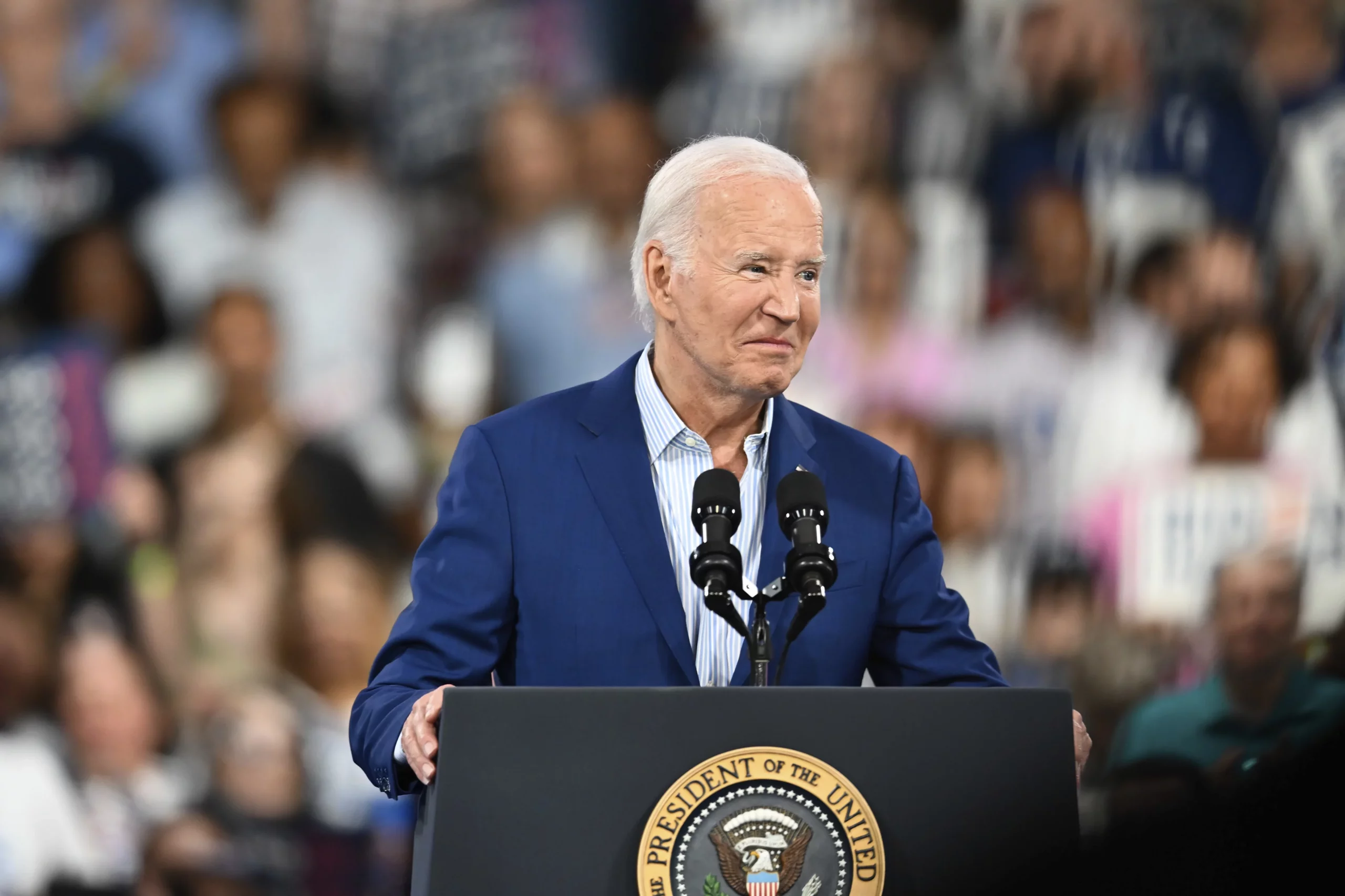

Democrats calling for President Joe Biden to end his candidacy could face a series of logistical challenges if they are successful in convincing him to step down.
Changing the presidential ballot is feasible, but it could come with its share of headaches and complications depending on the state and when and how the change is made.
Battleground states are already sensitive to changes in election laws, which saw dramatic modifications across the country in 2020 in part because of COVID-19 policies. Some states have, since that time, made pivotal changes to their voting processes, while others have brought criminal charges against high-profile officials for alleged election interference.
Now, these same states could soon be confronted with one of their highest-stakes election dilemmas yet: how to legally change their Democratic presidential nominee weeks or months out from Election Day.
The Democratic Party is struggling to coalesce behind its current nominee despite barreling toward its convention, which begins Aug. 19 in Chicago. There, Democratic delegates are set to nominate Biden, the 81-year-old incumbent whose declining mental and physical fitness has attracted an increasingly bright spotlight.
Should Democrats attempt to move forward with pushing Biden out, Republicans are waiting in the wings to fight them on it in some of the most competitive swing states.
The conservative Heritage Foundation’s Oversight Project has been leading the threat of legal action, publicizing a memo on the matter immediately after last month’s presidential debate, the event that sparked the intraparty strife among Democrats. The memo, dated June 21, warned of a “contentious path” to replacing Biden.
Mike Howell, the Oversight Project’s executive director, told the Washington Examiner on Monday that his organization’s motives were not political but instead were about enforcing laws in the wake of the 2020 election, when many states took controversial emergency measures to relax their election laws to allow for mail-in ballots, drop boxes, longer early voting periods, and more.
“Our interest is not one of partisan or these politics games. Our interest is that the rules are followed, and we want to prevent another situation like 2020 where the rules were not followed,” Howell said.
Howell said that if a state allows for an “improper substitution or withdrawal, we will activate.” He noted that he could see other groups, such as those backing third-party candidates, follow his group’s suit.
“You could have a world in which RFK Jr., who’s been in his own fight on ballot access issues with the Democratic Party, sees a reason to launch a fight, or Cornel West … or Jill Stein. I don’t know who, but those are theoretically people with [legal] standing,” Howell said.
At the Democratic convention, delegates could under party rules nominate a different candidate, but nearly 4,000 delegates have pledged to support Biden, and the president only needs to secure a majority of those votes to become the nominee. Chicago’s convention will be a grand affair, but this year the convention could also be largely symbolic as Democratic delegates are technically set to nominate Biden at a “virtual” meeting on Aug. 7 because of complications with an Ohio voting law.
If Biden were to withdraw, columnist Chris Stirewalt wrote, the convention would become a free-for-all.
“There is no mechanism by which Biden’s delegates would automatically ‘transfer’ to Vice President Kamala Harris,” Stirewalt wrote. “She would have to win at the convention, the same as any other candidate.”
He warned that an open convention would bring “raging waters of uncertainty.”
Longtime Democratic National Committee member James Zogby has floated a proposal that involves Biden withdrawing and the national Democratic Party hosting a mini primary of sorts in which DNC members would choose their preferred candidate ahead of the nominating convention.
Howell said his group would have to weigh how national Democrats approached replacing Biden and that he believes there is a narrow avenue for them to do it legally.
“It is so extraordinarily fact dependent, right? It depends on how they do it and when they do it,” Howell said. “There’s a universe in which they could do it, and we would come to the conclusion that it was legal, that they did this the right way, but that obviously is not something we consider to be likely.”
Replacing Biden would wipe out completed primary processes, like the one that occurred in Wisconsin in April.
While many states defer to the national party in the event that a nominee withdraws, the Oversight Project compiled an appendix of excerpts — which were pulled from arcane election laws that are different in every state — and pointed to problems that could arise from replacing a candidate so late in the election cycle.
Wisconsin, for instance, stipulates that the name of the candidate who is nominated must appear on the general election ballot unless he or she dies.
“Arguing for strict application of a [statute], like Wisconsin’s which prohibits withdrawal except in the case of death, would likely bear some fruit,” the Oversight Project’s memo read.
The Nevada Administrative Code allows for Nevada Democrats to replace Biden as the nominee any time before Sept. 3, according to the Las Vegas Review-Journal.
Nevada takes its cues from the DNC, which must provide the name of its chosen candidate to the secretary of state by that date.
Nicole Kelly, a lawyer who has practiced election law, detailed the hypothetical process of replacing Biden.
She said, in an ideal world, delegates would vote for Biden and then the president would end his candidacy after the convention but before the September deadline. Any changes after the September deadline would result in mayhem because Biden’s name would be the one on the ballot.
“It becomes messier when you don’t put the real nominee on the ballot,” she said.
She said voters “could be confused,” creating a scenario that would invite outside groups to challenge the process.
Howell said he could see legal complications play out in both blue and red states, noting that some Republican-controlled states, such as Georgia, could have their own motivations to be “complicit in an improper withdrawal and substitution for their own political reasons.”
THE PROMINENT DEMOCRATS CALLING ON BIDEN TO DROP OUT
Georgia became ground zero in 2020 for election integrity concerns and was the first state to pass an election overhaul bill, which former President Donald Trump and his supporters claimed at the time was not strict enough.
“In a state like Georgia, where they’re very weak on dealing with these election integrity issues, I could see them doing whatever is needed to accommodate the success of the campaign,” Howell said.





